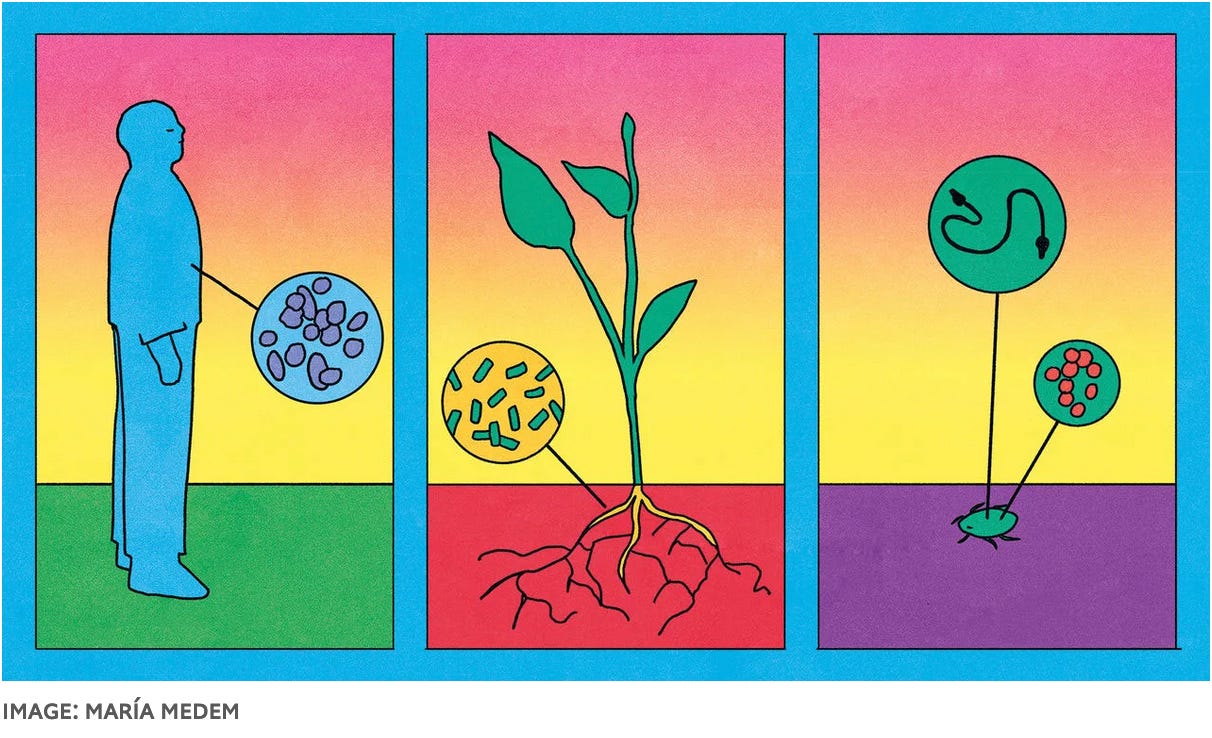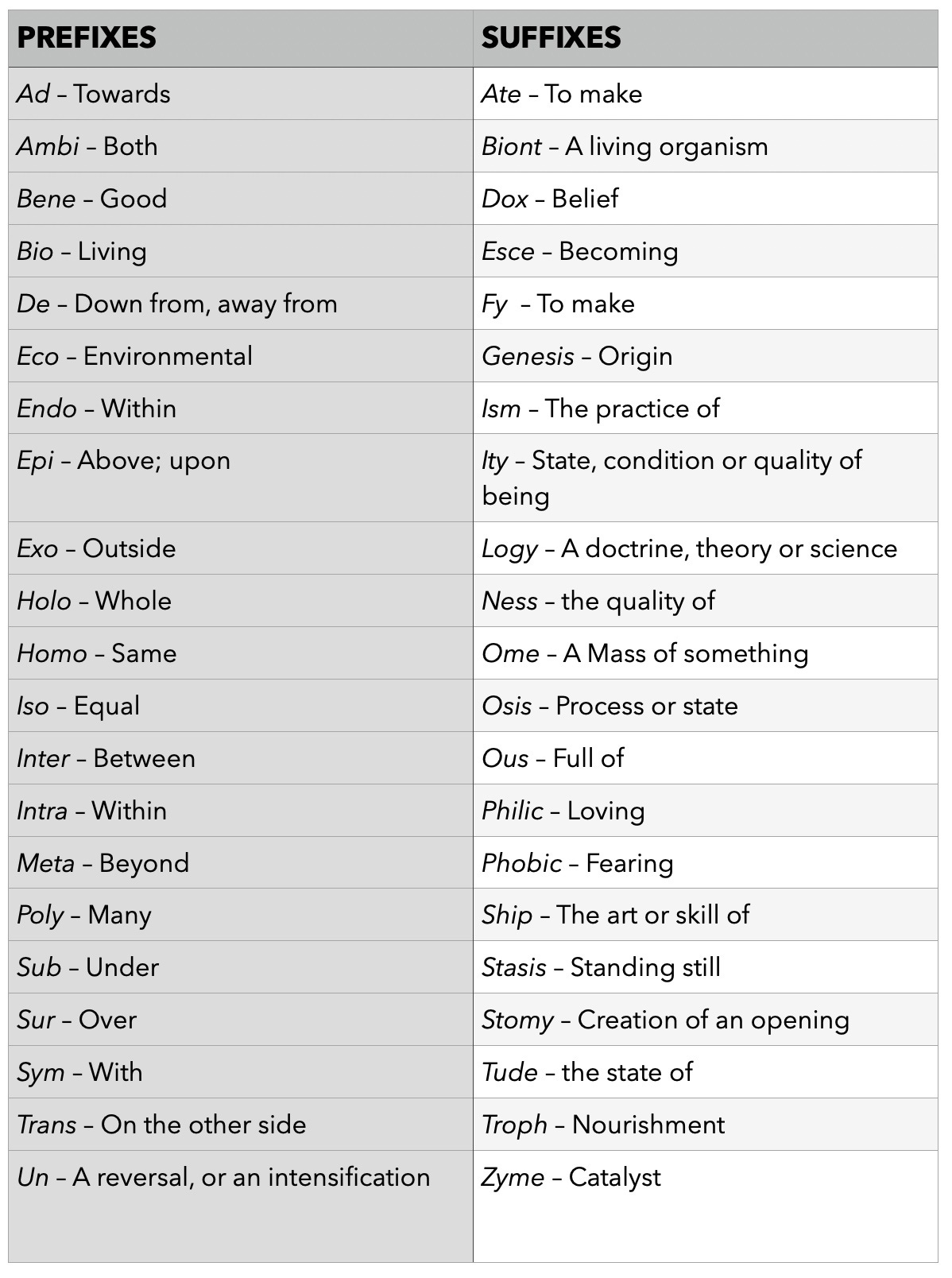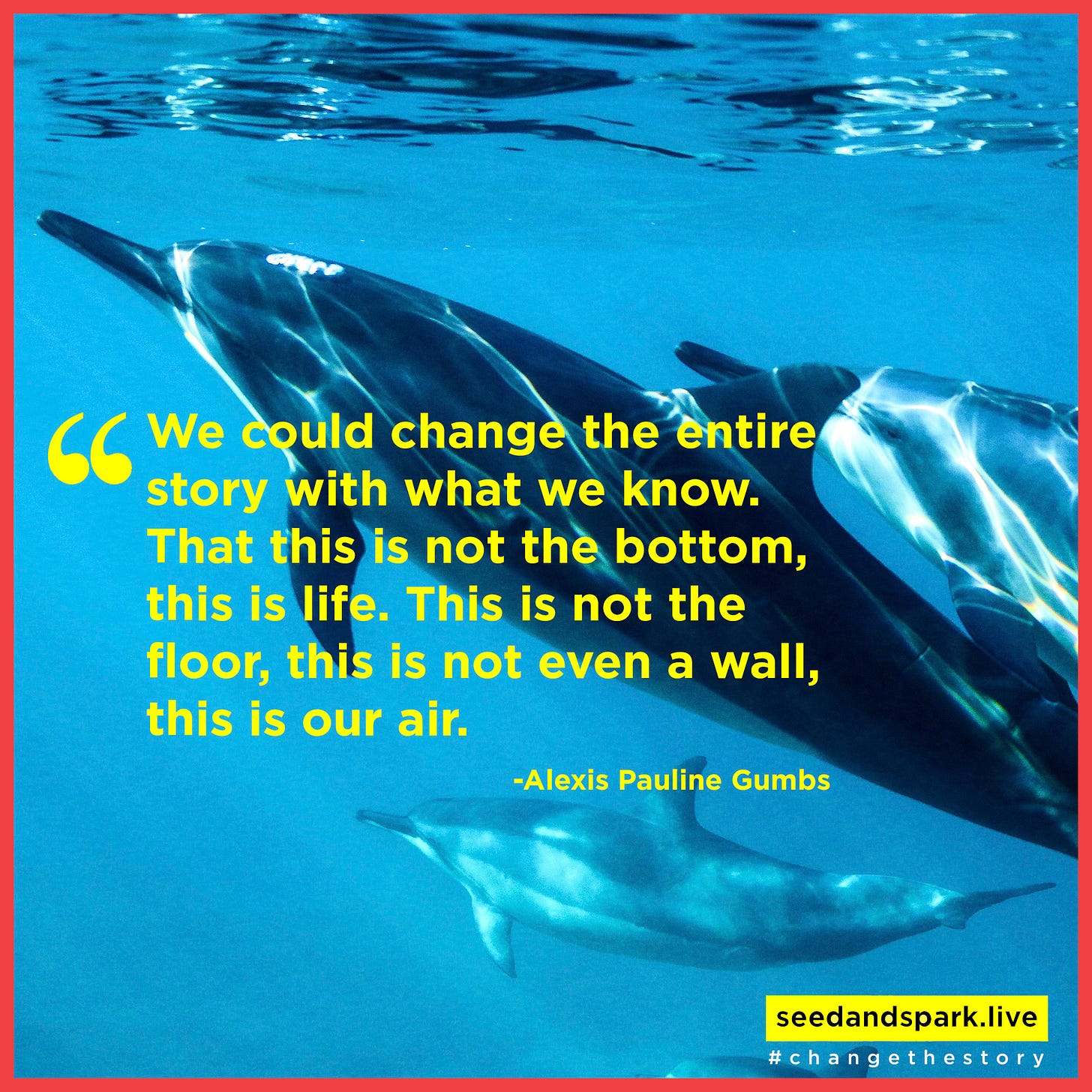Recently, a friend of mine was playing around and proposed a new word – holobiont (or whole being) – as a way to emphasize our need to pay closer attention to the inextricable connections of all living matter, and remind us we are not as separate from the natural world as we think.
Then, a few days later, I saw an article in The Economist that confirmed not only did he not create this word; it was already gaining traction with a growing number of biologists, who see in its new construction a new way of looking at life on earth – and our place in it.
“Out, they say, with the old idea of plants and animals ‘having a microbiome,’ and in with the idea that both are merely parts of a united meta-organism whose components evolve in concert with each other.”
Holobiont, therefore, orients us to the porous, permeable, inosculated nature of life on earth. Which made me think: what similarly new words would similarly widen our aperture of understanding in education?
After all, educators have decried for years the anachronistic quality of almost all the words we use to describe our work, from teacher (too limiting) to classroom (too confining) to school (too stultifying).
Clearly, we need a new lexicon for a new era – one that liberates us from our timeworn mental models, and helps us more accurately describe the new world(s) we seek.
So let’s make some new words – or, at a minimum, let’s think more explicitly about grammatical roots to better describe the root change(s) we seek.
To help, I’ve compiled a list of prefixes and suffixes – although please suggest others that I have inevitably overlooked.
When you look at them, and you think about the ways the world is changing (and the ways we need to change with it), what new words would you have us use?
Instead of teachers, for example, what if we aspired to be Ecozymes (environmental catalysts), or Transtomists (creators of an opening to the other side)?
Or, more to the point, when you see this list of prefixes and suffixes, which combinations capture the essence of the spirit(s) you wish to see given greater attention in how we all live and learn together?
Who’d like to go first?
This is how we #changethestory . . .







HolohumanEsce, a person with a seeking spirit towards self improvement as a member of this overall organism
Biopraxiology: “Bio-“ (life), “praxi-“ (from “praxis,” meaning actionable aspect of knowledge), and “-ology” (study of).
Biopraxiology could be defined as the field of study that focuses on the practical application of biological knowledge and principles across various domains like education, art, technology, environmental stewardship... The goal of biopraxiology could be to cultivate a more holistic relationship between human actions and nature, using the lessons learned from biological systems to guide real-world activities and decisions. It could also be a collective term for some fields that already exist like biomimicry/biomimetics, artificial neural networks, permaculture... and some fields that don’t yet exist. This could give us a better understanding of gaps, enhance interdisciplinary collaboration, and perhaps lead to more innovation.